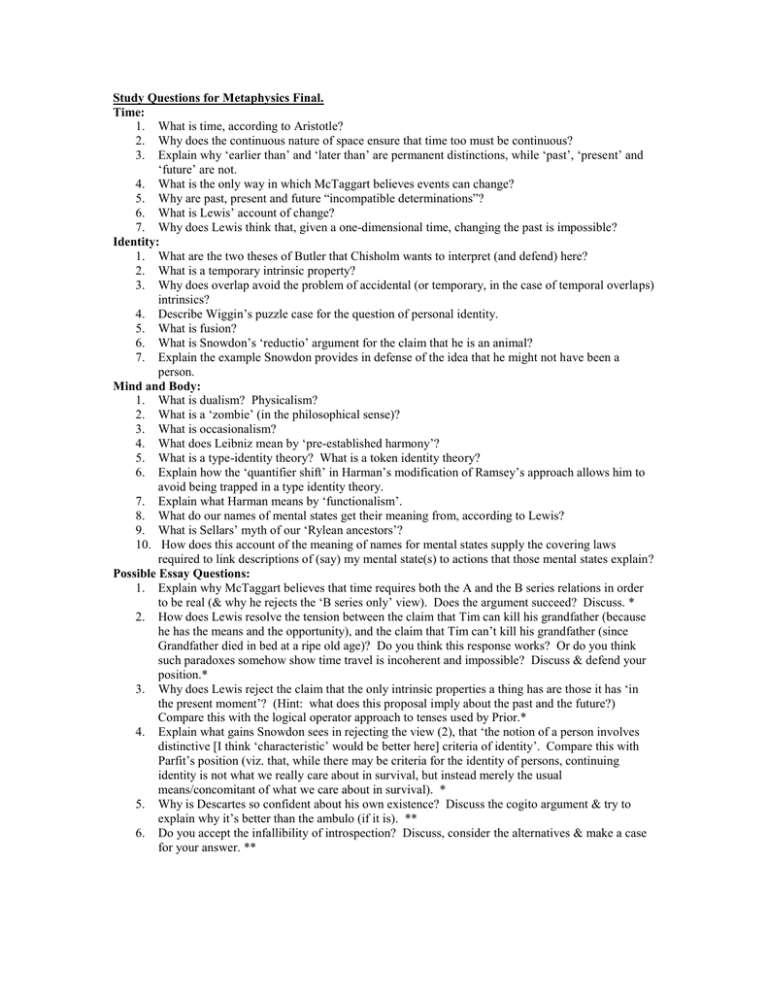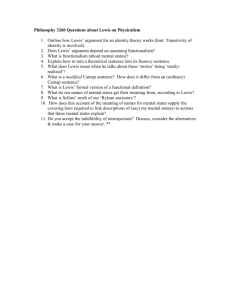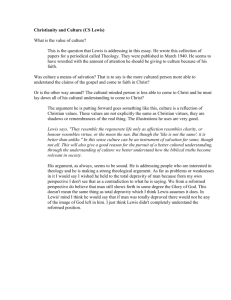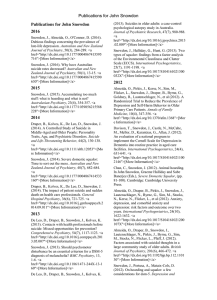Study Questions for Metaphysics Final. Time:
advertisement

Study Questions for Metaphysics Final. Time: 1. What is time, according to Aristotle? 2. Why does the continuous nature of space ensure that time too must be continuous? 3. Explain why ‘earlier than’ and ‘later than’ are permanent distinctions, while ‘past’, ‘present’ and ‘future’ are not. 4. What is the only way in which McTaggart believes events can change? 5. Why are past, present and future “incompatible determinations”? 6. What is Lewis’ account of change? 7. Why does Lewis think that, given a one-dimensional time, changing the past is impossible? Identity: 1. What are the two theses of Butler that Chisholm wants to interpret (and defend) here? 2. What is a temporary intrinsic property? 3. Why does overlap avoid the problem of accidental (or temporary, in the case of temporal overlaps) intrinsics? 4. Describe Wiggin’s puzzle case for the question of personal identity. 5. What is fusion? 6. What is Snowdon’s ‘reductio’ argument for the claim that he is an animal? 7. Explain the example Snowdon provides in defense of the idea that he might not have been a person. Mind and Body: 1. What is dualism? Physicalism? 2. What is a ‘zombie’ (in the philosophical sense)? 3. What is occasionalism? 4. What does Leibniz mean by ‘pre-established harmony’? 5. What is a type-identity theory? What is a token identity theory? 6. Explain how the ‘quantifier shift’ in Harman’s modification of Ramsey’s approach allows him to avoid being trapped in a type identity theory. 7. Explain what Harman means by ‘functionalism’. 8. What do our names of mental states get their meaning from, according to Lewis? 9. What is Sellars’ myth of our ‘Rylean ancestors’? 10. How does this account of the meaning of names for mental states supply the covering laws required to link descriptions of (say) my mental state(s) to actions that those mental states explain? Possible Essay Questions: 1. Explain why McTaggart believes that time requires both the A and the B series relations in order to be real (& why he rejects the ‘B series only’ view). Does the argument succeed? Discuss. * 2. How does Lewis resolve the tension between the claim that Tim can kill his grandfather (because he has the means and the opportunity), and the claim that Tim can’t kill his grandfather (since Grandfather died in bed at a ripe old age)? Do you think this response works? Or do you think such paradoxes somehow show time travel is incoherent and impossible? Discuss & defend your position.* 3. Why does Lewis reject the claim that the only intrinsic properties a thing has are those it has ‘in the present moment’? (Hint: what does this proposal imply about the past and the future?) Compare this with the logical operator approach to tenses used by Prior.* 4. Explain what gains Snowdon sees in rejecting the view (2), that ‘the notion of a person involves distinctive [I think ‘characteristic’ would be better here] criteria of identity’. Compare this with Parfit’s position (viz. that, while there may be criteria for the identity of persons, continuing identity is not what we really care about in survival, but instead merely the usual means/concomitant of what we care about in survival). * 5. Why is Descartes so confident about his own existence? Discuss the cogito argument & try to explain why it’s better than the ambulo (if it is). ** 6. Do you accept the infallibility of introspection? Discuss, consider the alternatives & make a case for your answer. **


